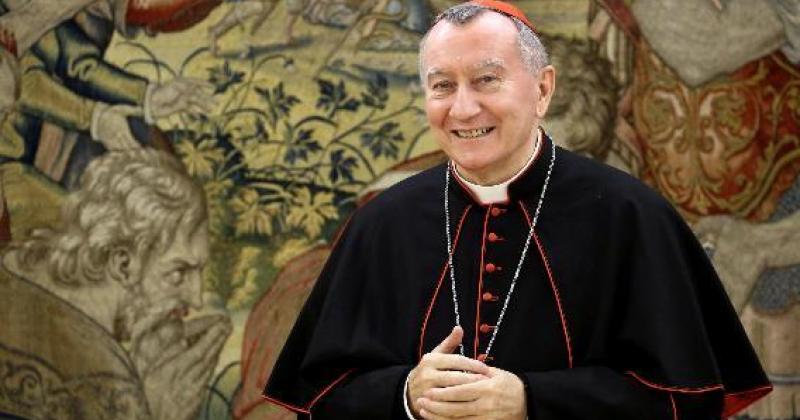Cardinal Parolin speaks to Vatican Radio about the pontificate anniversary and the changes within the Curia: we need "a genuine return to God and an authentic manifestation of the church’s true nature".
"The important thing, as the Pope himself says by insisting on “changing and renewing our hearts”, is that there is the desire to continue to reform the Curia not through functional criteria but, in fact, more profoundly, by genuinely returning to God and through an authentic manifestation of the Church’s true nature. This was stated by Cardinal Pietro Parolin, Secretary of State, in the interview with Vatican Radio, during which he commented on the fourth anniversary of Francis’s election.
"What impresses me about Pope Francis - he said - is his way of using faith as a reading-key for things and situations, which give him, I would say, a great and overall serenity. He has said this many times, but I experience it myself first hand through his direct contact: this overall serenity for which every situation, even the most difficult and complicated - and there have been many concerning, even restlessness situations - Francis has the ability to face with serenity: because he knows that everything is in the hands of God and this gives him the strength to move forward with courage. And, I would say this has also helped me in carrying out my role and responsibilities"
Regarding the reform of the Curia, Cardinal Parolin noted: "As stated by the Council, throughout history, the church semper reformanda! It is a fundamental dimension of the Church to be in a reforming process, "to continuously seek conversion," to use an evangelical word. It rightly must be this way. The Pope reminds us insistently that the Church must strive to be evermore authentic, get rid of the crusts accumulated in centuries of history and shine forth with the transparency of the Gospel”. I would say that this is basically the sense of the reform and that is why the Pope insists on the "change of heart"! Each needed reform, including the structural ones - for which the Roman Curia has already taken a number of decisions, the Pope reminded during his last address to the Roman Curia, have lead to a transformation, to a renewal - but everything starts from heart, everything starts from within. Therefore, quite rightly, the Pope keeps insisting on this. "
On the Post-synodal exhortation dedicated to the family and the ongoing discussions about the application of the document, Parolin said that we must "look at Amoris laetitia as a great gift. I remember in the beginning, before the first Synod on the Family, the Pope said: "This Synod will have to make the Gospel of the family shine". And the Gospel of the family means on one hand, God’s original plan on the family, the one he had conceived from eternity, and at the same time take in consideration also the present conditions in which this family is living: a family marked by the original sin as all human kind. So, I believe that Amoris laetitia has given great impulse to the pastoral ministry of the family, and has produced fruits of renewal, hope and accompaniment for those in fragile family situations. As for the criticism... Well, there have always been critical voices in the Church!” It is not the first time it happens. I believe that as the Pope himself says, that they be “sincere and constructive, and willing to find a way to make progress together and a better way of putting God’s will to work!”
Finally, drawing his conclusions on the Jubilee year of Mercy, the Secretary of State noted, "I believe the Church's should act as a channel for love and a place of encounter between God’s mercy and man as he lives the concrete joys and sorrows of life on earth, in certitude and even in weaknesses and moments of doubt. The Year of the Holy Mercy was just an opportunity, a gift that the Pope has given to the Church for it to become the instrument of mercy. Rightly so, as he said, we have closed the Holy Door, but the door of mercy is always open! As for its fruits, I would like to emphasize two things. The first is, that many Christians have re-discovered confession as a sacrament of God's mercy, where the Lord Jesus allows us to experience the mercy of God, the forgiveness of sins and all his love towards us. I heard that there has been a revival of this Sacrament, and that many people have approached to confession. Hopefully this awakening will continue and ultimately translate into a renewed attendance to the Sacrament of Reconciliation. Second, is an increasing attention towards situations of poverty and need. The Pope showed us, especially through his own gestures, acts of mercy which by the way, are also urgently called on during Lent time.
Conversion springs from the exercise of fraternal charity, an emerging and renewed attention to people who are in difficulty, to the poor, the marginalized, those who need support and closeness. To me it seems there have been several initiatives. I believe that this is also another aspect on which we must continue to insist. "
